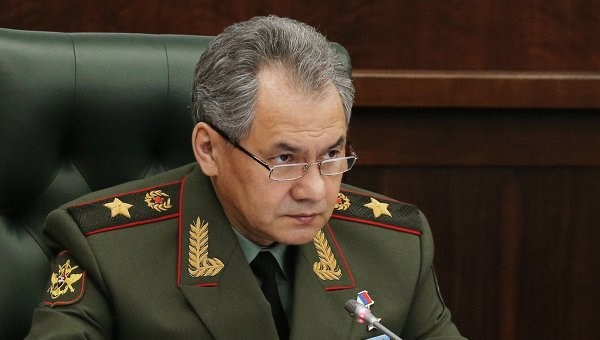Russian Defense Minister: Russia's peacekeeping operation in Transnistria pays off
On August 24 Russian Defense Minister Sergey Shoygu said that Russia is not planning to stop the peacekeeping mission in Transnistria.
"If we talk about peacekeeping, we never had doubts about it and are not going to," said Shoygu at a meeting with the President of the unrecognized republic of Transnistria, Vadim Krasnoselsky.
According to Shoygu, “the most important, vital mission in the region, which was entrusted to the peacekeeping forces, is being carried out successfully”.
"Perhaps in the history of peacekeeping, and I am not speaking only about the Soviet Union, this is the first successful experience of bringing peace. We believe that this format justifies itself," said the Russian Defense Minister.
In turn, Krasnoselsky thanked Russia for the peacekeeping operation in Transnistria. "We see no alternative to a peacekeeping operation in the region to maintain peace and security," he said.
Later, at the ceremony of awarding Russian and Pridnestrovian troops from the joint peacekeeping forces stationed in the region, Shoygu said: "27 years ago, as a result of resolute actions of peacekeepers, bloodshed was stopped in Transnistria. The joint peacekeeping mission has proved its effectiveness and serves as an example of a successful peacekeeping operation."
On 22 June 2018, the UN General Assembly ratified a resolution which calls on Russia to withdraw its troops from Moldova. The Russian soldiers are stationed in the territory of the so-called “Pridnestrovian Moldavian Republic”. The resolution was supported by 64 states, including Ukraine.
Chisinau wants to reach an agreement with Kyiv for the Russian troops to pull out through a corridor in Ukrainian territory. Kyiv has expressed its willingness to provide such a corridor. However, Russian Deputy Prime Minister Dmitry Rogozin said that Russia will never agree to wrap up its “peacekeeping mission” in Transnistria.
Transnistria, where the Russian-speaking population is the majority, declared independence from Moldova in 1990. Russia supports the separatist regime in the region, and refers to the presence of its troops as a “peacekeeping operation”. However, the international community recognizes Transnistria as part of Moldova.
At the OSCE Istanbul Summit in 1999, Russia undertook to withdraw its troops and weapons from Transnistria, but did not follow through with it.
